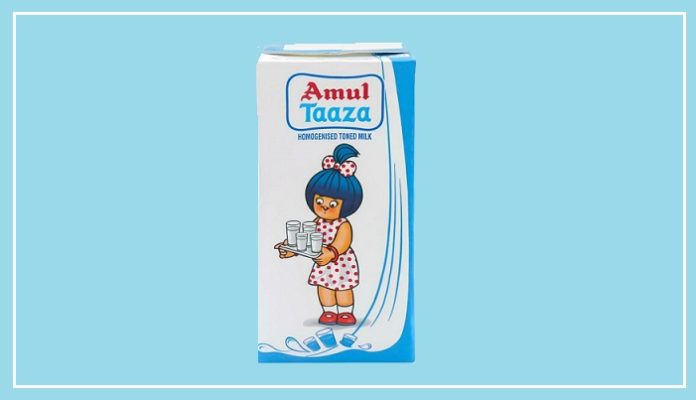The dairy industry has become more competitive as Amul and Nandini Milk prepare to go head-to-head in Bengaluru, one of India’s largest milk markets.
The tension surrounding Amul’s entry into the Bengaluru market can be felt through the social media buzz that ensued after the announcement was made through e-commerce channels.
Hashtags like #SaveNandini and #GobackAmul inundated social media platforms.
Amul Decides to Enter Bengaluru Milk Market
According to sources in the dairy industry, Nandini, which is marketed by the Karnataka Milk Federation (KMF), holds the top position as the largest milk supplier in Bengaluru, providing around 23 lakh litres of milk per day.
This equates to approximately 70% of Bengaluru’s milk market, which is estimated at 33 lakh litres per day.
To safeguard its market share, Nandini is offering packet milk at a competitive price point of Rs 39 per litre.
This is in response to Amul’s decision to retail its milk at higher price points in the capital of Karnataka.
According to Jayen Mehta, the Managing Director of Gujarat Co-operative Milk Marketing Federation (GCMMF), which markets Amul, the company’s packet milk brands, Amul Taaza and Amul Gold, will be sold in Bengaluru for Rs 54 per litre and Rs 64 per litre, respectively.
Mehta stated that although he was aware of the social media buzz surrounding Amul’s entry into Bengaluru, the company is currently focused only on e-commerce and quick commerce channels.
He added that they are not considering general trade at this time, as it would require lowering price points, which is not in their current plan.
Mehta also mentioned that Amul’s entry into modern trade in Bengaluru would occur six months later.
According to sources in the dairy industry, the entry of Amul into the Bengaluru market could shake things up for Nandini, which has not faced any competition from a rival co-operative milk brand in the city thus far.
A high-ranking executive in the dairy industry remarked that while Amul is currently limiting its presence to online and modern trade channels, there is always the possibility that it may expand into general trade in the future.
Nandini should be prepared to face competition from Amul in the coming days.
According to Harish Bijoor, a brand expert and the CEO of Harish Bijoor Consults based in Bengaluru, Amul may encounter a tough challenge from Nandini in the city.
Harish Bijoor pointed out that Nandini’s market in Bengaluru is a challenging one, and he does not believe that Amul can easily steal its market share.
He added that most milk co-operatives divide their markets by geographic competence.
Since milk is a perishable product that is best supplied locally, it may not be the best strategy for Amul to compete in the same areas as Nandini.
Bijoor believes that Nandini may capitalize on this aspect.
According to Jayen Mehta, the managing director of GCMMF, Amul is procuring milk from neighboring Andhra Pradesh to meet the demand in Bengaluru.
He added that Amul has three plants in Andhra Pradesh, and one of them is about 120 km away from Bengaluru, from where they are currently supplying milk to the city.
Heated politics Over Amul’s Entry
On Saturday, a political controversy erupted between the ruling BJP and opposition Congress and JD (S) over the potential impact of Amul’s entry into the state on Nandini.
While the opposition parties have accused the BJP government of trying to eliminate Nandini, Chief Minister Basavaraj Bommai has stated that the government’s position on Amul is clear.
The chief minister of Karnataka, Basavaraj Bommai, has accused the opposition Congress party of politicizing the entry of Amul into the state.
He stated that Nandini is a national brand and has a presence in other states as well.
According to Bommai, there is no need to fear Amul’s entry, and the government is clear on the issue.
He reassured the public that the government will take all necessary measures to give Amul a tough competition, and Nandini, as an established brand, will continue to thrive.
